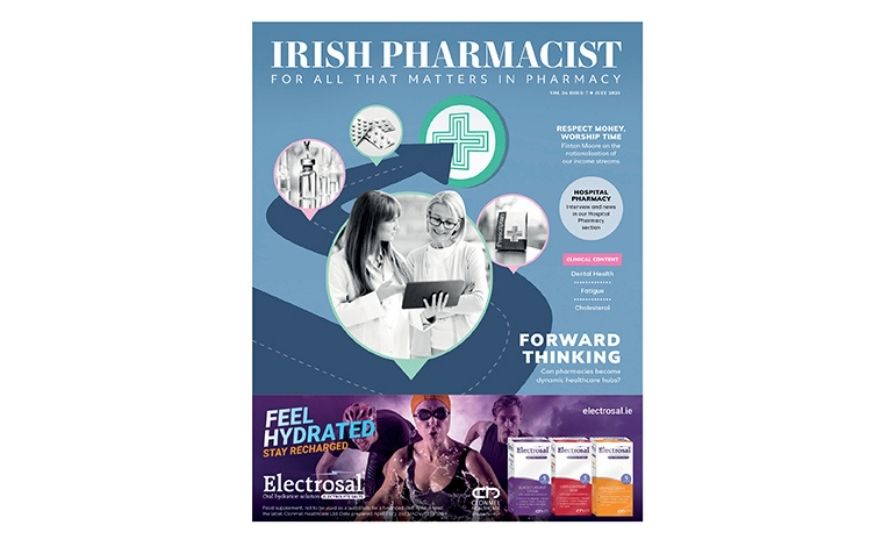Terry Maguire reviews the contents of the UK’s Misuse of Drugs act on the 50th anniversary of its introduction
As a service, we had failed John and for that reason we agreed with the substitution prescribing team, who had sent him our way, that we would step down. We had not been able to drop everything when he burst through the door demanding that he get served immediately, as his taxi was waiting and he only had a tenner left. We could not accede to his repeated demands that his Sunday takeaway dose be supplied a day early. We could not understand or condone his threatening and disruptive behaviour.
This was a sub-standard service we were providing and he was keen to point this out to all those waiting quietly and patiently in their turn for the other services we provide. The way he was treated was disgraceful, he claimed. Perhaps, I tried to reason, it was the law and his response, unprintable here, suggested a disdainful contempt for that law and those who apply it.
On 27 May 1971, the UK government brought onto the statute books the Misuse of Drugs Act (MDA) and for the last 50 years, this Act has dictated how drugs with a potential for misuse, controlled drugs (CDs), are handled by healthcare professionals and what punishments criminal courts must impose for possession or illegal supply. The MDA created drug classes and drug schedules and the public often confuse these terms. ‘Class’ determines the level of sanction for possession or supply, whereas ‘Schedule’ determines the degree of control.
Methadone, for example, is a Class A drug and illegal possession or supply attracts the harshest penalties. It is also a Schedule 2 drug, which means its lawful supply for the management of opioid addiction is strictly controlled; in the pharmacy, it must be stored in a secure drug safe and all supply recorded in a dedicated controlled drug register.
Over the last 50 years there have been numerous amendments to the MDA, which has taken into account changes in risks associated with drugs covered by the Act. Perhaps the most radical changes happened after the inquiry into Dr Shipman, who murdered more than 250 mainly elderly patients with morphine. Much stricter controls on supply to, and destruction of, medicines by healthcare professionals are now in place and we know they are rigorous and strict.
As MDA turns 50, it is perhaps timely to consider how fit for purpose the act is. Many activists are promoting a more liberal approach to recreational drug use and are calling for a complete rethink of MDA. Cannabis, it is argued, is less dangerous than alcohol or for that matter tobacco and therefore should be in a lower class, if in any class at all. Currently it is Class B but was, between 2004 and 2009 in the UK, downgraded to Class C. In 2009, it was raised back to Class B, against the advice of the Government Advisory Committee who rules on such matters.
Prof David Nutt, who was chair of the Advisory Committee, was sacked for comments supporting reclassification of many drugs based on his view that the classes did not properly reflect the harms and risks the drugs present to individuals and society.
The Transform Drug Policy Foundation (https://transformdrugs.org/mda-at-50) is using MDAs 50th birthday to seek a root-and-branch review. MDA, in their view, is a blanket prohibition on psychoactive drugs used for recreational purposes. That is precisely what it is. Ironically, they are suggesting that MDA should be repealed and replaced by a framework that already exists.
The group is suggesting that: “Drug supply should be regulated through a system of licensing based on an assessment of risk. This system would establish different levels of restriction, ranging from very lightly-regulated sale in shops, to supply by prescription only.”
Perhaps the most radical changes happened after the inquiry into Dr Shipman
The Medicines Act 1968 and the licensing laws for alcohol and tobacco, they are suggesting, provide a proper regulatory framework for these drugs. This is somewhat strange, since the Medicines Act was designed to address the horrors of drug damage, as witnessed by the thalidomide disaster of 1960-61. The Medicines Act controlled the supply of all licensed medicines in clinical settings but it was determined at that time that the Medicines Act was not capable of controlling the use of substances such as LSD and cannabis which did not, certainly at that time, have a clinical or therapeutic use, only a recreational use.
This is exactly what the Medicines Act does. The only, and very important, difference is that this proposal, other than in the category of greatest risk, does away with the ‘prescriber’, traditionally the doctor but more recently the nurse or the pharmacist. For most of the drugs currently controlled by the MDA, they are suggesting “self-prescribing”.
They go on to say: “This approach allows for nuanced, responsive and appropriate regulations to be applied; ensuring supply is safe, while preventing a market free-for-all. Each drug (including different preparations) would be regulated based on a detailed assessment of the risks it presents. We have identified five broad types of regulation through which currently, illegal drugs could be supplied in future.”
Their five categories range from low-risk drugs Category 1 such as caffeine, which is not really regulated at the moment as far as I am aware, to high-risk Category 5. Category 2 is similar to the regulation applied to alcohol sold in pubs where the product is consumed on the premises. They see local licensing authorities having the power to issue licences and applying conditions.
Category 3 is supply for home use as in off-licences and tobacconists. Retailers need to acquire a licence for sale from their local authority. They are advocating state-owned retail outlets to ensure better control, as they seem to fear the private sector might turn into legal drug deals. I really don’t see any difference between Category 2 and 3.
In Category 4, they recommend that sales be limited to specialist pharmacy outlets, with well-trained staff and tight restrictions on availability, product display, etc. This is the model they recommend for the sale of most stimulant drugs, such as powder cocaine and MDMA. They also recommend that outlets are state-owned, as they see this as the best way to prevent excessive marketing and profit-driven sales.
In Category 5, they propose a prescription-only model but only for the highest-risk drugs, yet they fail to elaborate on which drugs might be in this category. Drugs are prescribed to a named user by a qualified and licensed medical practitioner. They are dispensed by a licensed practitioner or pharmacist from a licensed pharmacy or other designated outlet. The Scottish government have been keen to implement this type of prescribing for heroin in Scotland but they can’t change the law due to MDA being a reserved power in Westminster. Westminster is not minded to allow this change.
The Transform Drug Policy Foundation paper is an interesting if not naive suggestion for reform. There is little doubt that society is moving to a more liberal stance on recreational use of drugs but I think MDA, with appropriate amendments, will be with us for some time to come because no matter how liberal you might be on the use of psychoactive drugs, greater access will only result in more ruined lives, such as John’s. Happy birthday, MDA. Many happy returns.








